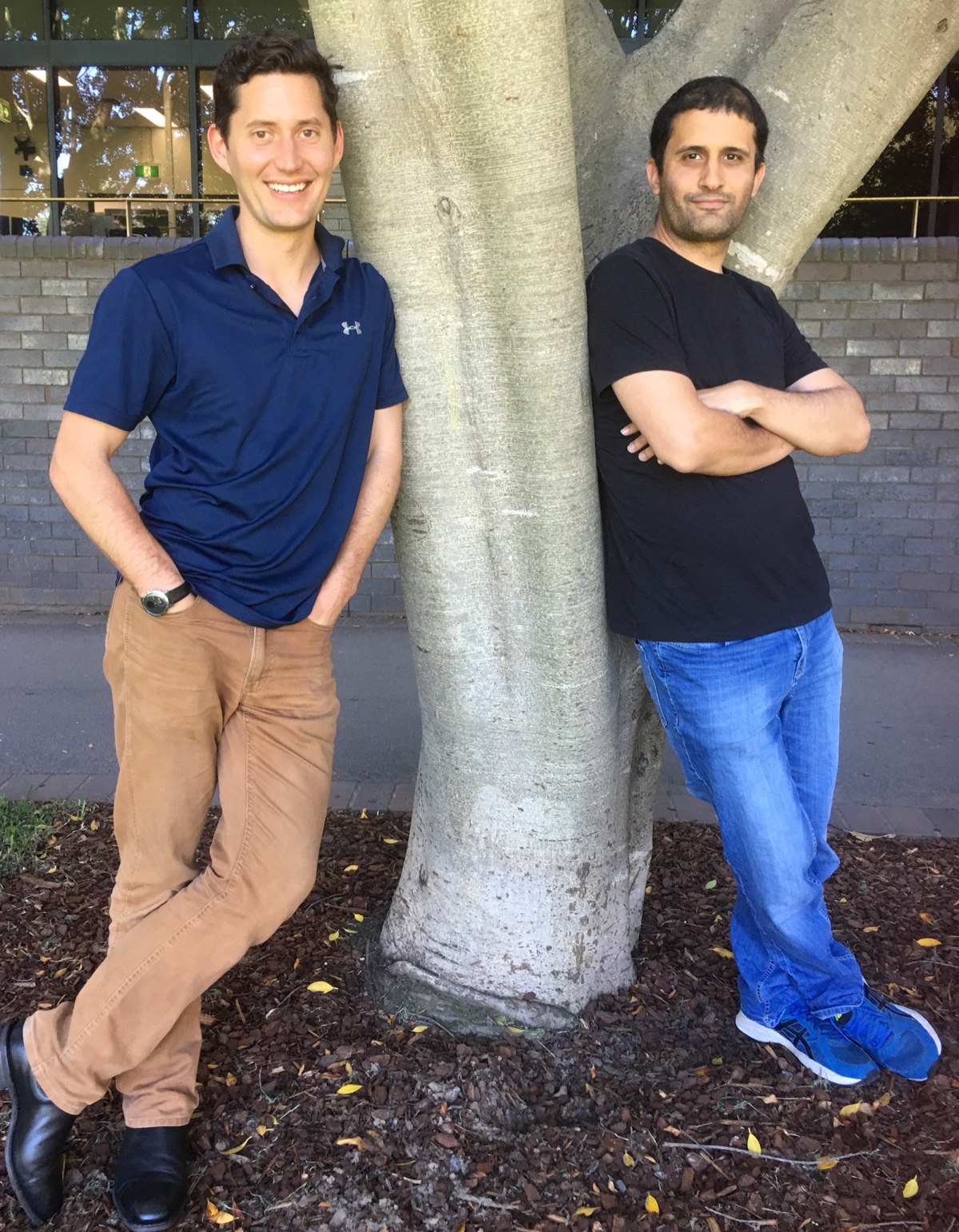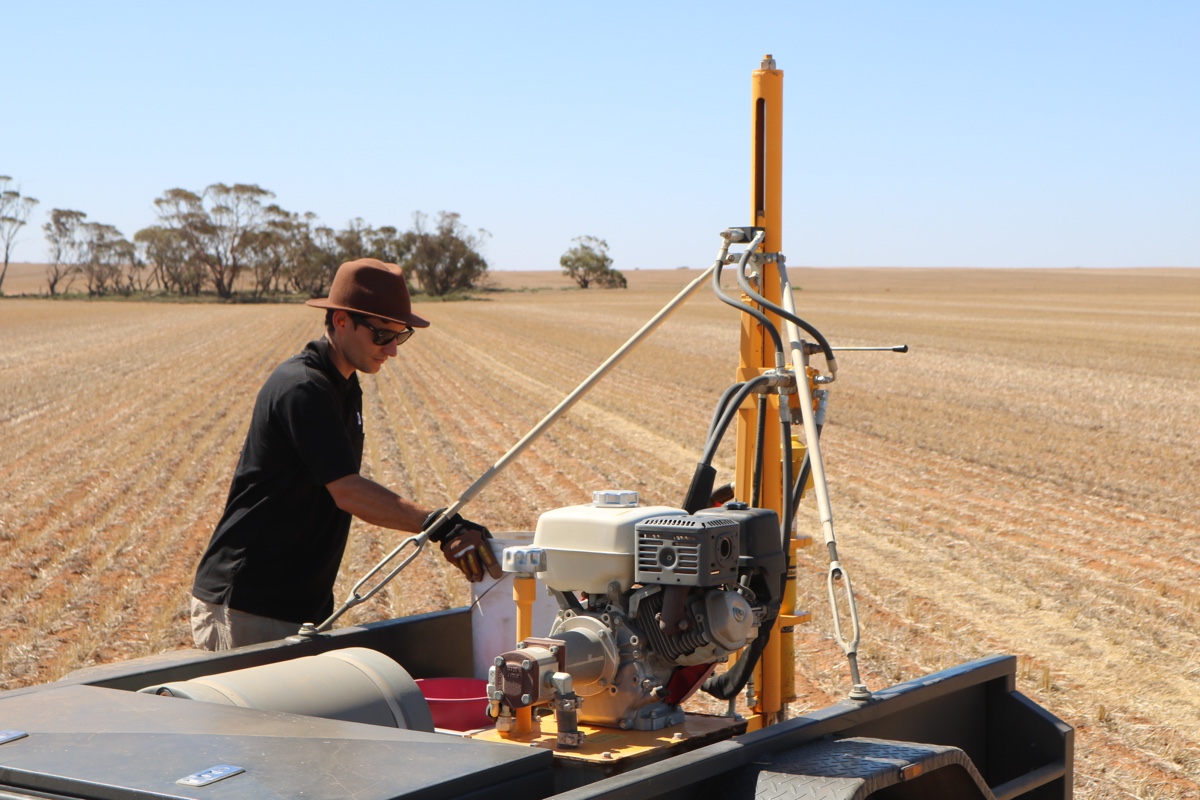Soil. Not usually a source of excitement, except that SMART Region Incubator (SRI) entrepreneurs Sam Duncan and Shahriar Jamshid, pictured below, are mad about it - and they are successfully persuading others to get excited about it too.
Their startup business, FarmLab, aims to take the hassle out of soil testing. FarmLab’s solution so impressed the judges at the recent evokeAG Pitch Tent competition that the startup won the prestigious Austrade Bridge Hub Special Prize, valued at $10,000.
The award has given FarmLab a place in the Austrade/Bridge Hub Agrifood Tech boot camp to Israel in May 2019. Israel is second only to Silicon Valley as an innovation hub: FarmLab will have more than 800 agri & food tech entrepreneurs to engage with while there.
 “It’s fantastic,” said Sam. “This was just an idea back in 2016. Through 2017 we spent a lot of time talking to people to get an understanding of the problem we wanted to solve, and we got to work on the technology in 2018.”
“It’s fantastic,” said Sam. “This was just an idea back in 2016. Through 2017 we spent a lot of time talking to people to get an understanding of the problem we wanted to solve, and we got to work on the technology in 2018.”
In June 2018, FarmLab became a partner in the three-year, $1.1 million Soil Tech Project to translate existing soil science into a suite of six innovative digital soil management tools for land managers.
FarmLab’s liftoff has been enabled by SRI. “SRI has been phenomenal — so supportive,” Sam says. “I don’t think we would be where we are today if it wasn’t for all the connections, the linkages to the UNE SMART Farm, and the community of entrepreneurs that our membership of the SRI has given us.”
Sam’s path to soils, startups and the SRI started, unexpectedly, in South Sudan.
He was posted to the conflict zone during 12 years as a logistics officer with the Royal Australian Air Force. There, he was astonished at the fertility of the Sudanese soils in contrast to the poverty of its people.
“In South Sudan and the Middle East, where I was also deployed, climate change-driven droughts pushed people off the land and sparked unrest that has turned into destructive wars.”
“Meanwhile, back home in Australia, a world-class agriculture sector has been built on the continent with the world’s poorest arable soils.”
“So I’ve seen how soils and their productivity can be central to prosperity and conflict. They are also part of the answer to climate change — if we can sequester more carbon in soils, we drawn down some of the damaging carbon from the atmosphere and make our soils more fertile at the same time.”
FarmLab was born of the idea that by greatly simplifying soil testing, farmers and other land managers are more likely to understand how their soil health is trending, and what they need to do to bring their soils to maximum productivity.
Soil testing is complicated, because soils are complicated. A functioning soil is an ecosystem in which biology, chemistry and physics work in concert to take the system towards health, or ill-health. Even a small paddock can contain several types of soil, each in many different states of health.
FarmLab’s service helps land managers strategically plan soil tests across the farm landscape, uses smartphone location systems to guide the tester test sites, and then provides a choice of soil testing methodology depending on the type of analysis required.
The fledging company is now searching for "the right kind of investor" to take it to its next stage -- which Sam hopes will include overseas expansion, particularly in the Americas, which have similar forms of agriculture and similar soil management requirements.


